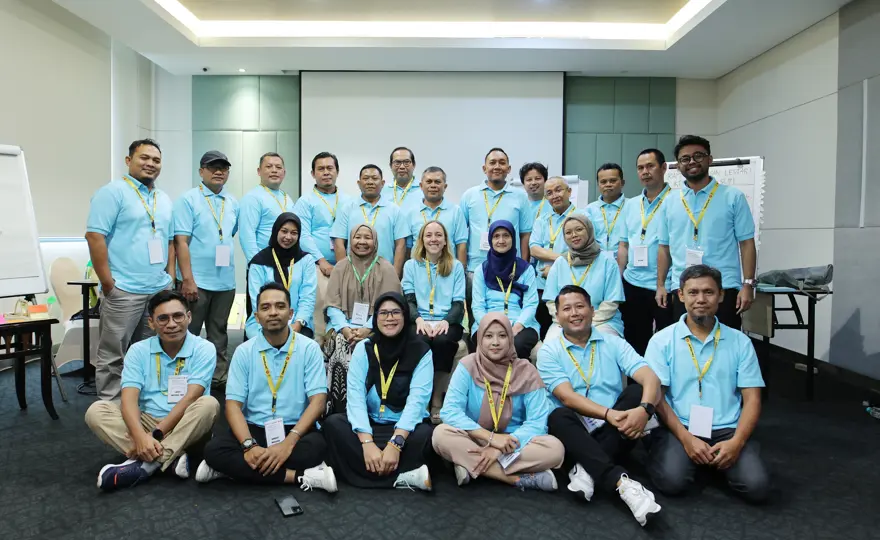ClientEarth Communications
31st October 2025


ClientEarth, in collaboration with Indonesia’s Ministry of Forestry, ASEAN Working Group on Social Forestry (AWG-SF) and RECOFTC, is proud to support ongoing efforts to strengthen Indonesia’s social forestry systems. Rooted in the ASEAN Guiding Principles for Effective Social Forestry Legal Frameworks (AGP) published in 2022, this initiative reflects a shared commitment to empowering Indigenous Peoples and Local Communities (IPLCs) and ensuring sustainable forest management.
A major step forward was the 2024 national workshop and recent field assessments in Lampung (Sumatera) and Lombok (West Nusa Tenggara), which explored how national legal frameworks and the AGP are applied on the ground. These assessments revealed that while progress has been made, many IPLCs still face challenges in the social forestry permit process, including understanding procedures, defining eligibility, and navigating unclear land boundaries.
In response, a three-day capacity-building workshop was held in Jakarta between 28 to 30 October 2025, aimed at strengthening the knowledge and skills of local forest agency staff. Participants included provincial and district-level social forestry teams, Forest Management Unit (FMU) staff, and other extension personnel.
The opening day featured insightful speeches from key stakeholders, including RECOFTC, the ASEAN Secretariat, ClientEarth, and the Director General of Social Forestry. Sessions delved into PIAPS (Indicative Map of Social Forestry Areas), procedures for permit approval, and legal gaps in Indonesia’s current frameworks. Ground-level experiences were shared, highlighting local successes and persistent challenges, such as the technical verification process and proposal submission dynamics.
Day two maintained the momentum, with lively plenary discussions on social forestry models, technical verification cases, and region-specific opportunities and constraints. Participants demonstrated genuine passion and commitment, underlining that social forestry is not just a policy framework—it is deeply personal and rooted in community realities.
The workshop wrapped up with a renewed sense of purpose. The training, grounded in the AGP framework, equips forest officials with the tools to make the permit process more inclusive, rights-based, and effective. Importantly, the initiative also reinforces Indonesia’s alignment with ASEAN commitments and encourages ongoing regional knowledge-sharing through the AWG-SF.
As the workshop concludes, the path forward is clear: by integrating local knowledge, improving institutional capacity, and aligning policies with the lived experiences of IPLCs, social forestry can truly thrive in Indonesia.
Thank you to all participants, partners, and stakeholders for your energy and dedication. Together, we are laying the foundation for stronger community rights and more resilient forests.